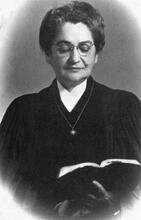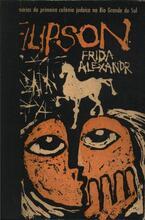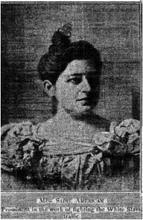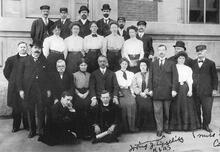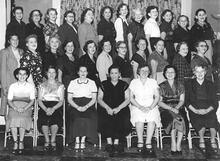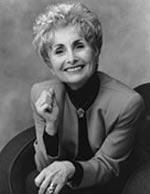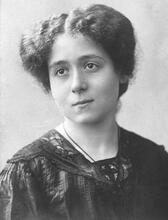Frances Hart Sheftall
Institution: The Jacob Rader Marcus Center of the American Jewish Archives, Cincinnati, OH, www.americanjewisharchives.org
Frances Sheftall came to America with her brother and married in 1761. A prominent member of the Jewish community in Savannah, Georgia, she was forced to raise her children alone and earn an income when her husband and oldest son were captured in 1778. The family was so poor that their clothes were impounded to pay their passage from Charleston to Philadelphia, where they were reunited with her newly freed husband and son in 1781. After her husband’s death in 1792, she petitioned for compensation from the United States government for his service, to support her children. Her letters offer a vivid glimpse of the turmoil of this defining moment of American history.
Family
Frances Hart Sheftall was born in the Hague, in the Netherlands, to Moses and Esther Hart in July 1740, and raised in an Ashkenazi home. Little is known of her life before her arrival in Charleston with her brother Joshua, who soon became a prosperous merchant.
The earliest surviving documents that mention Sheftall concern her marriage to Mordecai Sheftall of Savannah, Georgia, in October 1761. Frances (also called Fanny) Sheftall was twenty-one years old when she arrived in Savannah as a new bride. Her twenty-six-year-old husband had been born in Georgia to two of the original Jewish arrivals of July 1733, Benjamin and Perla Sheftall. Mordecai and Frances Sheftall were at the center of the Savannah Jewish community before the Revolution, with regular religious services for the local congregation taking place at their home by 1774.
Revolutionary War Experiences
Frances Sheftall, as the wife and mother of ardent patriots, had occasion to experience the Revolutionary War in a very personal way when her husband and eldest son Sheftall were captured by the British in December 1778, at the fall of Savannah. Having taken refuge from the fighting in nearby Charleston, she found herself in the position of supporting four young children, aged seven, nine, eleven, and fifteen, without recourse to the family resources, which remained in Savannah under British control.
Sheftall took on an unaccustomed public role during this trying time, petitioning Continental officers such as General Benjamin Lincoln to intercede on behalf of her captive husband and son. She also wrote cheerful letters to help her husband and son keep up their spirits while in prison and found the wherewithal to rent a house for herself and the younger children and to send them to school, in addition to putting food on the table and clothing on their backs—all while maintaining a Term used for ritually untainted food according to the laws of Kashrut (Jewish dietary laws).kosher household.
Sheftall was left on her own with the children for close to a year and a half. In March 1780, she wrote to Mordecai that she had “received the two thousand pounds of Mr. Cape, with which I make exceeding well out by doing a little business.” What sort of business she conducted with this money is not divulged. A subsequent letter informed her husband that she was “obliged to take in needle worke to make a living for my family,” and a letter written in late 1780 by her son mentions that she was supporting the family by taking in washing and ironing.
By the time she and the children were reunited with Mordecai and Sheftall in Philadelphia in April 1781, Frances Sheftall had managed to bring her household through epidemics of smallpox and yellow fever, the four-month cannon siege of Charleston waged by the British navy, and the humiliation of having the family clothing impounded to pay their passage from Charleston to Philadelphia.
Post-War Life
Following the war’s end, Sheftall returned to Savannah and her former domestic role. Nevertheless, following her husband’s death in 1792, she resumed her public activities on her children’s behalf, petitioning Congress for redress of the loss suffered by the family as a result of Mordecai Sheftall’s financial sacrifices for the patriot cause.
Frances Hart Sheftall died at Beaufort, South Carolina while on retreat from an epidemic of “pestilential fever” in Savannah.
Hagy, James William. This Happy Land: The Jews of Colonial and Antebellum Charleston (1993).
Levy, B.H. Savannah’s Old Jewish Community Cemeteries (1983).
Marcus, Jacob Rader, ed. American Jewry—Documents, Eighteenth Century: Primarily Hitherto Unpublished Manuscripts (1959), and Early American Jewry. Vol. 2 (1953).
Stern, Malcolm H. “The Sheftall Diaries: Vital Records of Savannah Jewry, 1733–1808.” American Jewish Historical Quarterly 54, no. 3 (March 1965): 242–277.

![Sheftall, Frances - still image [media] Sheftall, Frances - still image [media]](/sites/default/files/styles/scale_width_300px/public/mediaobjects/Sheftall-Frances_small.jpg?itok=ycqehTeq)
![blue.jpg - still image [media] blue.jpg - still image [media]](/sites/default/files/styles/medium/public/mediaobjects/blue.jpg?itok=RkdKmpf6)


